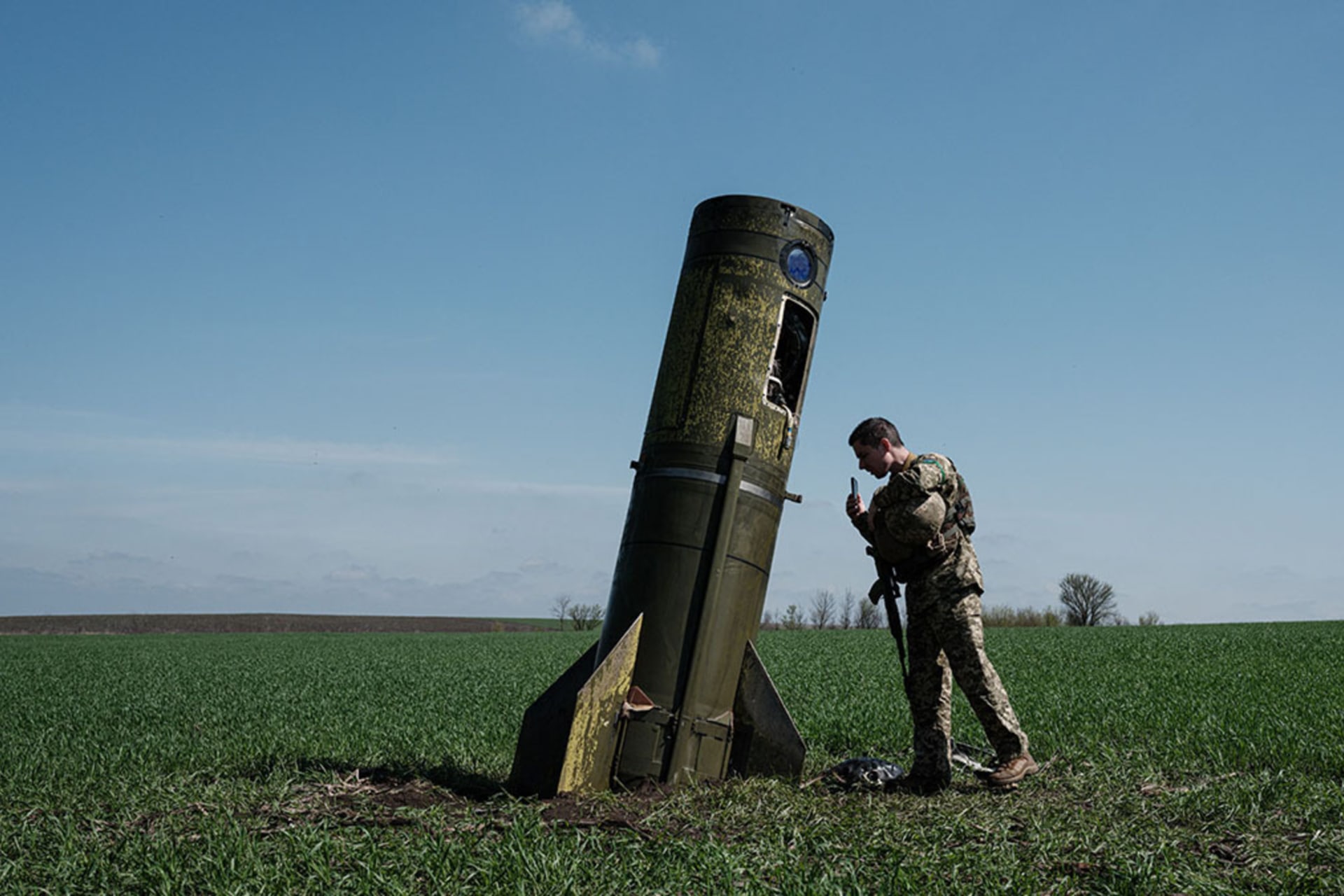Ukraine Should Wait on Cease-Fire Talks With Russia. Here’s Why.
Ukraine has rejected recent calls by the West for it to settle its war with Russia. Ukrainian leaders believe they have a chance to reclaim territory lost in the early fighting—and that they can do so before serious negotiations begin.

By experts and staff
- Published
Experts
![]() By Stephen SestanovichGeorge F. Kennan Senior Fellow for Russian and Eurasian Studies
By Stephen SestanovichGeorge F. Kennan Senior Fellow for Russian and Eurasian Studies
Several European leaders and prominent Western commentators have called for a cease-fire in Ukraine, but without success. Ukrainian leaders have reason to hope they can continue to repel Russian forces, and pushing for a settlement now could foreclose military gains, undermine Western unity, and strengthen Russian President Vladimir Putin’s resolve.
Given the death and destruction that Russia’s invasion has caused, why are Ukrainian officials resisting calls for a cease-fire?
The first reason is obvious from a look at the map: Russia occupies much of Ukraine. Yes, Russia’s armed forces have suffered some major setbacks, which some analysts—including my CFR colleague Charles Kupchan—have described as a strategic defeat. But the territory Russia has seized is roughly four times larger than the two separatist regions it controlled in eastern Ukraine when the war started. To Ukrainians, that’s not a defeat for Putin; it’s a victory that has to be undone. They believe that, with the right support from the West, they have a shot at reversing their early losses. That hope is the second reason they don’t want a cease-fire now. As more and better military equipment flows to their forces, they see an opportunity to turn the tide against the Russians.
At what point would it make sense for the United States to call for a compromise?
If Ukrainian forces push the Russians back to the pre-invasion lines of February 23, or even close to them, that would be a genuine strategic defeat for Putin. It would automatically start a serious conversation between Ukrainian and Western leaders about whether and how to translate success on the ground into success at the negotiating table. Both Washington and Kyiv know this; no anguished New York Times editorials would be needed to start the discussion.
As for Russian forces, if the next phase of the war goes badly for them, they’ll be calling for talks themselves. The signal that Putin is serious about negotiations is when he stops accusing Ukraine and the West of staging atrocities, such as those at Bucha, to thwart diplomacy. Until then, talking about all the painful compromises Ukraine will have to make for peace will only divide a country that the United States has every reason to help.
What about the fear that the Russians will use nuclear weapons?
No one can completely dismiss the risk that Putin will use nuclear weapons—not after all the bizarre things he has said and done of late. But there are also reasons not to overstate that risk or be paralyzed by it. Though Putin makes mistakes, he doesn’t seem suicidal. (To the contrary, those long conference tables suggest extreme caution.) And as deferential as his generals have been to all his wild ideas, they’re not suicidal either. Fear of nuclear conflict might be the one thing that could lead them to resist a presidential order. It’s the job of the president of the United States to reinforce their hesitations and to make warnings about the consequence of using nuclear weapons as vivid and credible as possible.
Wouldn’t an early settlement facilitate a better postwar relationship between the West and Moscow?
Managing relations with Russia will be an immense policy challenge no matter how—or how soon—the war ends. There is no easy path back to a cooperative relationship, not even a narrow, transactional one. Russian Foreign Minister Sergei Lavrov admits as much. He recently said Russia was at an historic turning point, like 1917 or 1991. (For a senior Russian official, there is no more dire way to describe the moment than to compare it to these two cases of regime collapse.)
Great skill and imagination will be needed to forge a new relationship, which won’t endure unless it rests on some measure of common interest. But the United States can’t dodge this upheaval, or smooth the transition, simply by deciding that it wants to work with Russia on climate change or any other pressing challenge. Among all the global players whose cooperation is needed to solve such problems, Russia doesn’t rank very high.
Proponents of an early end to the war often express doubt about Western unity. Is that another reason to push Ukraine to compromise?
Both Russia and Ukraine are watching the unity of the Western alliance very closely. It’s one reason Ukrainian President Volodymyr Zelenskyy has put so much effort into courting European publics. Putin, meanwhile, is counting on division within the West to simplify his policy choices. He likely tells himself that the North Atlantic Treaty Organization (NATO) and the European Union (EU) have overreached, and that European consumers won’t stand for the higher food and energy costs that sanctions and the war impose on them.
If this is Putin’s hope, it will surely make him even less likely to show any flexibility in negotiations. To succeed, Western policy has to disabuse him of this hope. European leaders who want Russia to call the war off on terms that they—not to mention Ukraine—can accept first have to persuade Putin that Western unity will hold. Only when Putin stops counting on disunity will he start looking for an exit strategy.
